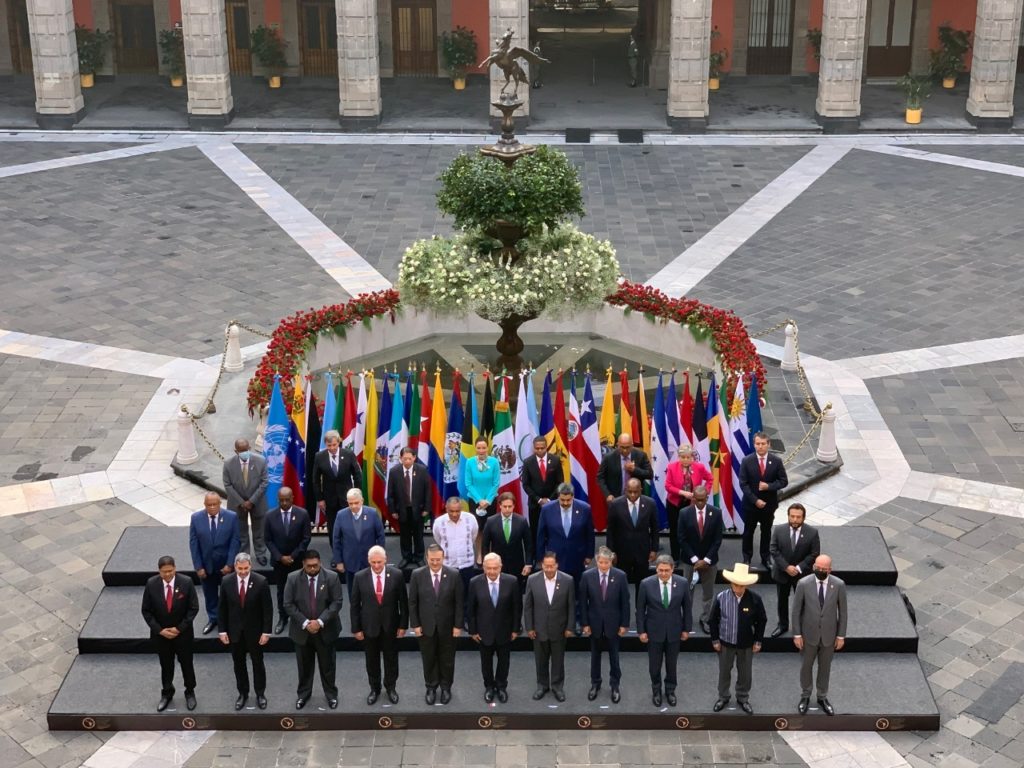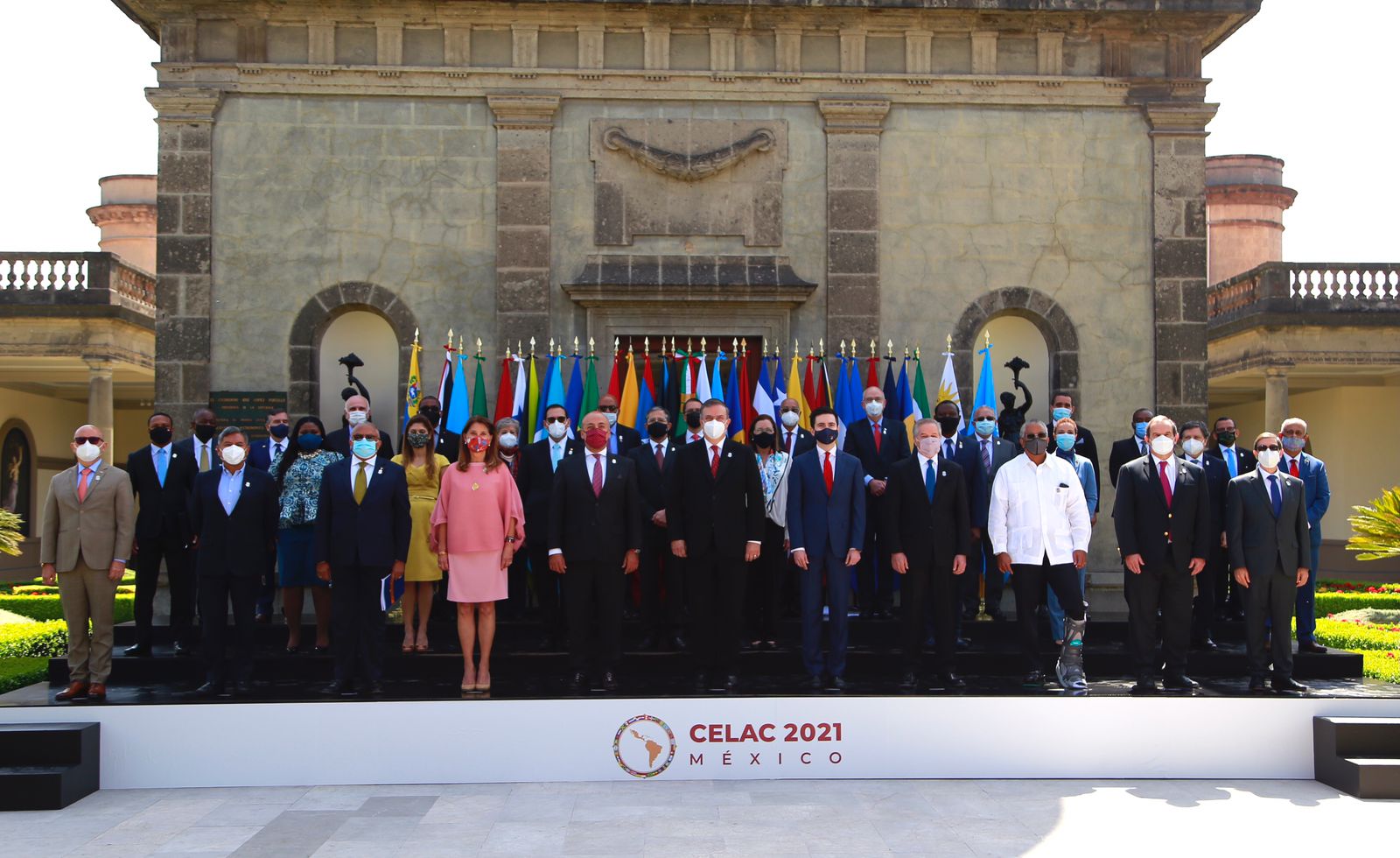On September 18, the long-awaited summit of the Community of Latin America and the Caribbean states (CELAC) was held; the previous meeting of such a level took place in 2017.
As president pro tempore, Mexico had been fuelling the interest in the event for several weeks. Some other participants, especially the most “anti-imperialistic” Venezuela, Cuba and Bolivia, had not been missing the opportunity to oppose the Latin-American CELAC to the pan-American OAS using traditional anti-American rhetoric.
The media actively circulated reports that the upcoming summit would offer a new alternative to the OAS. But the revolution, as always, did not happen. The future of the OAS was not on the agenda. Unless the Bolivian president, Luis Arce, harshly criticized the OAS, calling it “ineffective”, “outdated” and “irrelevant to the needs of the states or to the principles of multilateralism.”
But even if we assume that the future of the OAS may depend on the political decision of the Latin American states (whose total contribution to the OAS budget is still less than 20%) such ambitious task will still require unity, which simply is not the case. We only have to look at the most striking examples of regional contradictions:
First, Brazil, the largest economy in the region, in 2020 suspended its participation in CELAC.
Second, Argentina, in the context of the government crisis, is now not up to regional integration. Now the former Minister of Foreign Affairs of Argentina, Felipe Sola, learned of his resignation already in Mexico, where he had arrived with the intention of promoting the Argentine candidacy (by the way, the only proposed) as president pro tempore of the CELAC. As a result, the country’s delegation to the summit was headed by the Vice Minister for Latin America.
Third, the participation of the heads of Venezuela and Cuba in the summit, instead of fostering rapprochement of the regional governments, had almost the opposite effect. It was the circumstance that became the official reason for Jair Bolsonaro’s refusal to arrive at the summit. For the same reasons, Colombian President Iván Duque did not attend the meeting. The Colombian government rejected the participation of the Nicolás Maduro regime, which does not comply with democratic principles and violates the rights and freedoms of Venezuelan citizens.
Paraguayan President, Mario Abdo, during the meeting, considered it necessary to highlight that his “presence at the summit in no sense or circumstance represents recognition of the government of Mr. Nicolás Maduro.”
The head of Uruguay, Luis Lacalle Pou, was also forceful in condemning the human rights violations in Venezuela, Nicaragua and Cuba.

Despite this context, at the VI CELAC Summit, again there were strong calls for comprehensive regional integration.
The Mexican President, Andrés Manuel López Obrador, began his speech as follows: “These times CELAC can become the main instrument to consolidate relations between our countries in Latin America and the Caribbean, and achieve the ideal of integration with the United States and Canada on the basis of respect for our sovereignties; that is, to build in the American continent something similar to what was the economic community that gave rise to the current European Union.”
This “ideal”, in his opinion, could be achieved under three conditions:
1. Non-intervention and self-determination of peoples, development cooperation and mutual assistance in the fight against inequality and discrimination.
2. Trade and economic agreement with the United States and Canada, aimed at strengthening the internal market and stimulating regional industries.
3. “Industrial integration with the social dimension”, which implies investments from the United States and Canada for the regional development.
Leaving aside the fact that it seems somewhat inappropriate and premature to propose initiatives of the type, which involve the active participation of the United States, and to point out that at the level of the Latin American region such ambitious integration at the current stage seems utopian. After all, if the presidents of the largest economies in the region (and these are Brazil, Argentina, Colombia and Chile) were not even present at the summit, who is the proposal addressed to?
But we must pay tribute to the Mexican president. Andrés Manuel López Obrador has intensified efforts to revive the faded integration project. Since, at times, it seemed that Latin America owes the maintenance of CELAC viability to China, which generously subsidizes numerous initiatives through the China-CELAC forum. By the way, Chinese President Xi Jinping made a special address to the participants of the summit.
At the same time, it should be noted that the peak of Mexican efforts fell in the period after the midterm elections, where the ruling coalition, having retained the majority, lost a significant number of parliamentary, having failed to keep the majority needed to introduce constitutional amendments. In this context, the desire to restore Mexico’s regional positions, at least assuming leadership among Latin American left-wing regimes, seems quite natural. To a certain extent, this idea is illustrated by the words of the president of Venezuela, who declared upon his return from the fields of the summit that “Mexico has received us as children.”
Meanwhile, the region is so polarized that the using terms “left” and “right” seems especially inappropriate, since there are even more contradictions within these camps than between them.
Suffice it to say here that the president of Ecuador, millionaire and conservative Guillermo Lasso, who actively promotes the idea of Ecuador’s accession to the Pacific Alliance, was the most sympathetic to Mexico’s ambitious proposal. “All of our common past will be useless if we do not have a common future, and that common future is only built through the freedom of our citizens to open new markets,” said Lasso.
At the same time, Nicaragua accused Argentina of interventionism and refused to support its application for the Presidency Pro Tempore of CELAC. In fact, the “leftist” government of Daniel Ortega claimed the “leftist” government of Alberto Fernández to be “an instrument of North American imperialism”.
However, we consider it important to point out that Mexico offers the CELAC member countries not only some element of populism, but also a series of constructive projects that have reflected in the final declaration of the VI CELAC summit:
– An increase in international cooperation and solidarity in order to support and strengthen capacities and infrastructure for the production and distribution of vaccines, medicines and health supplies in Latin America and the Caribbean.
The CELAC Summit unanimously adopted ECLAC plan for self-sufficiency in health matters, including the creation of an analogue of the European Medicines Agency, the development of a regional platform for clinical trials and the creation of a regional vaccine procurement mechanism (instead of failed COVAX).
The fight against the coronavirus had become a defining topic for the CELAC agenda for many months: meetings of ministers, reinforced cooperation of the regional research centres for the development of vaccines as well as various regulatory and technical aspects, meetings of different experts, activities of specialized institutions. The fight against COVID-19 has also received considerable attention of the China-CELAC Forum.
– Creation of the CELAC Fund for comprehensive response to disasters, which seed capital amounted to $15 million.
– Promote a common position at the UN Climate Change Conference (COP26).
– The creation of the Latin American and Caribbean Space Agency (ALCE). Now, 9 national space agencies will work together, strengthening research capacity and reducing costs.
Mexico can take credit for those concrete achievements. And the fact that the term of its pro temporary presidency has been extended for another year is a recognition of Mexico’s contribution.
Nevertheless, the crisis has limited aspirations of the states to ran their candidacy for the honorary position. And the intra-bloc contradictions, which, on the one hand, create a special need for continuity, but on the other, do not allow dealing adequately with urgent problems, like migration, played a role.
With all significant potential, the institutional weakness of the CELAC makes its trajectory circumstantial. As long as it remains, the viability of the CELAC will be in a doubt. And it seems that the only leader who is willing to admit it publicly is Nicolás Maduro, who has presented a proposal to create a new institutional structure and a general secretariat of the CELAC.


